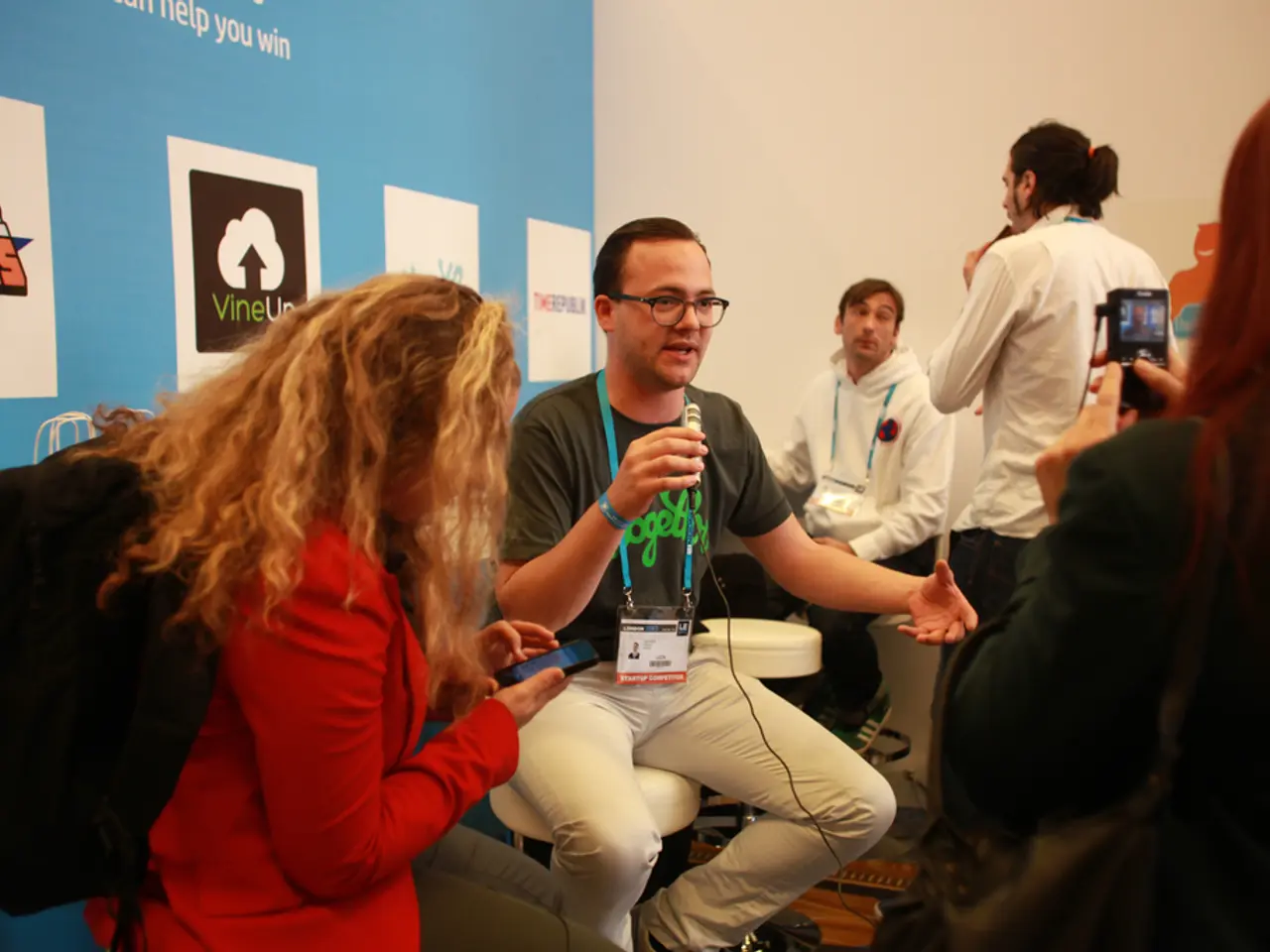Job Hunter's Guide to Social Media Background Checks
In the modern world of work, maintaining a professional and well-rounded social media presence has become a crucial aspect of job applications. Employers are increasingly using social media background checks during the hiring process to ensure they make the right recruitment decisions and avoid potential risks.
One of the primary reasons for these checks is to prevent mis-hires, a costly mistake that can damage a company's brand and culture, and the cost of replacing an employee can be up to 33% of the employee's first-year salary. Social media checks help employers assess whether a candidate is a good fit culturally and professionally.
Social media background checks provide insight into a candidate's behavior, values, and communication style, which are crucial for maintaining a positive company culture and protecting the company's reputation. They also serve to confirm skills and spot hidden strengths that may not be apparent from resumes and interviews.
Employers use social media checks to uncover potential issues such as inappropriate content, deceitful job qualifications, or accusatory posts about previous employers, which can indicate potential risks or liabilities. Legal compliance and bias prevention are also key considerations, with employers ensuring their background checks comply with laws like the Fair Credit Reporting Act (FCRA) and Equal Employment Opportunity Commission (EEOC) guidelines.
Commonly checked platforms include LinkedIn, Facebook, Instagram, TikTok, YouTube, and others. Employers pay attention to posts, comments, likes, reshares, followers, and look for extremist views, exaggerations or lies, negative remarks about former employers, confidential business information, and inappropriate, offensive, violent, discriminatory, or disrespectful content.
A smartly managed social presence can increase chances of getting hired. On LinkedIn, employers focus on a candidate's work history, positions and responsibilities, key achievements, recommendations, skills, certifications, licenses, awards, honors, patents, and education-related details. Being authentic, relatable, and sharing real stories can help build a genuine community of followers.
Regularly screening one's digital presence can help eliminate potential risks before job hunting. Using professional language and being mindful of spelling and grammar can also help during pre-employment screenings. As much as 70% of companies rely on social media checks during pre-employment screenings.
It's important to note that employers are prohibited from checking a candidate's social profiles to find protected class information, such as race, religion, sexual orientation, citizenship, disabilities, etc., which could be used for discrimination.
In conclusion, a well-managed social media presence can significantly increase a job applicant's chances of success in today's competitive job market. Employers use these checks to verify candidate information, identify personal interests, skills, and strengths, assess cultural fit, discover conflicts of interest, and potential red flags. A hiring manager's goal is to make the right recruitment decisions to avoid negatively impacting an organization's success and reputation.
- Maintaining a professional social media presence is pivotal in the modern job applications process due to employers' increasing use of social media background checks.
- Social media checks offer employers insight into a candidate's cultural and professional fit, helping them to avoid costly mis-hires and protect their brand and culture.
- Employers examine posts, comments, likes, and followers on platforms like LinkedIn, Facebook, Instagram, TikTok, YouTube to uncover potential issues, such as inappropriate content, deceptive qualifications, or negative remarks about former employers.
- A candidate's LinkedIn profile is crucial, as employers focus on work history, achievements, recommendations, skills, and education-related details to evaluate their qualifications.
- Regularly screening one's digital presence can help eliminate potential risks before job hunting, and using professional language during pre-employment screenings can increase chances of getting hired.
- Employers must adhere to legal guidelines, such as the Fair Credit Reporting Act (FCRA) and Equal Employment Opportunity Commission (EEOC) guidelines, to prevent bias during social media checks, and are prohibited from finding protected class information, like race or religion, for discrimination purposes.




